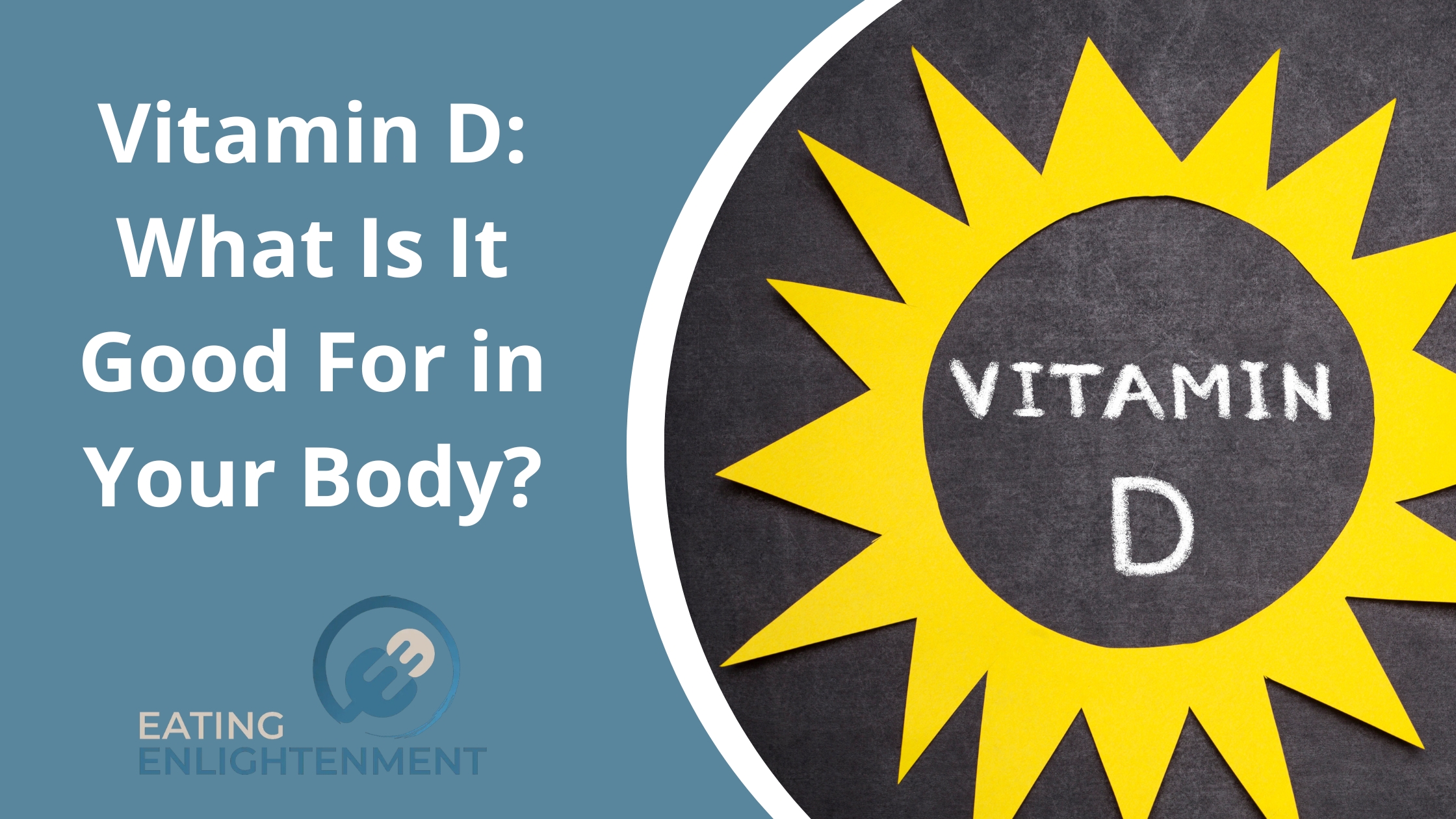Vitamin D is an essential nutrient our body requires to maintain optimum health. It helps in the absorption of calcium, proper functioning of the immune system, and maintaining bone health. Our body can produce vitamin D in response to sunlight, which is also in some foods.
However, many people may not get enough vitamin D, leading to a deficiency that can cause various health problems.
In this blog, we will discuss what vitamin D is good for in your body.
Strong Bones:
Vitamin D is vital for the absorption and utilization of calcium and phosphorus in our body, which are essential for strong bones.
Without enough vitamin D, the body cannot absorb calcium effectively, leading to weak or brittle bones. A lack of vitamin D can also cause rickets in children, which is a condition that causes weak or deformed bones.
Hence, it is essential to ensure you get enough vitamin D to prevent such conditions.
Immune System Function:
Vitamin D plays a vital role in supporting the immune system function in our body. It helps to regulate immune cell activity and fight against disease-causing pathogens.
Without enough Vitamin D, you may be at an increased risk of infection and illness. Some studies also suggest that vitamin D may play a role in reducing the risk of autoimmune diseases, such as multiple sclerosis and rheumatoid arthritis.
Mental Health:
Vitamin D may also have a positive impact on our mental health. Studies have shown that individuals with depression, anxiety, or seasonal affective disorder tend to have lower levels of Vitamin D in their bodies.
While research on the link between vitamin D and mental health is still ongoing, getting enough vitamin D may help in improving symptoms and supporting overall mental well-being.
Heart Health:
Research suggests that vitamin D may also help in maintaining a healthy heart. It may help in reducing the risk of hypertension, stroke, heart attack, and other cardiovascular diseases.
However, the exact mechanism behind how Vitamin D helps promote heart health is still unclear.
Pregnancy and Fertility:
Vitamin D is also essential for women’s health, particularly during pregnancy and lactation. Getting enough vitamin D during pregnancy can help support fetal growth and development, reduce the risk of complications, and prevent maternal complications.
Studies also suggest that vitamin D may play a role in female fertility, and deficiency may lead to menstrual irregularities or infertility.
Vitamin D: Sources, Deficiencies
However, getting enough Vitamin D can sometimes be a challenge. Deficiency can occur due to a lack of Vitamin D in the diet, poor absorption, or a metabolic need for higher amounts. Deficiency symptoms can include bone pain, muscle weakness, and soft bones. In severe cases, adults may experience a loss of bone mineral content.
So, where can we find this vital nutrient?
Sunshine is a great source, but it’s not always accessible or sufficient. Certain foods like fatty fish, cheese, and egg yolks also offer Vitamin D. If you still need to catch up, dietary supplements are available.
What are the symptoms of vitamin D deficiency?
Here are some of the common symptoms of Vitamin D deficiency:
- Feeling Tired All The Time: Do you feel fatigued even after sleeping? It could be due to low Vitamin D levels.
- Frequent Illness or Infections: Are you catching colds more frequently than usual? Vitamin D plays a vital role in supporting your immune system.
- Depression or Mood Swings: Have you ever felt inexplicably down or moody? Vitamin D influences the mood-regulating hormones in your brain.
- Bone and Back Pain: Experiencing persistent bone or back pain? Low Vitamin D can cause a decrease in calcium absorption, leading to these symptoms.
- Slow Healing of Wounds: Notice your wounds taking longer to heal. Vitamin D aids in skin repair and regeneration.
- Hair Loss: Losing more hair than usual? Severe Vitamin D deficiency might be a contributing factor.
- Muscle Pain: Constantly dealing with muscle aches and pains? It could be a sign of Vitamin D deficiency.
Remember, your body communicates with you through symptoms like these. Don’t ignore them.
Health Risks from Excessive Vitamin D
While Vitamin D is crucial for our health, too much can lead to Vitamin D toxicity, also known as hypervitaminosis D.
This condition can cause a buildup of calcium in your blood (hypercalcemia), which can lead to nausea, vomiting, weakness, stomach pain, constipation, and diarrhea. In severe cases, it can result in kidney damage, soft tissue damage, and bone damage.
It’s crucial to balance your Vitamin D intake and consult with a healthcare provider to prevent any potential health risks.
Should you be taking vitamin D every day?
Yes, regular intake of Vitamin D is recommended for maintaining good health. However, the dosage depends on age, health conditions, and lifestyle. For most adults, a daily intake between 400-800 IU (10-20 micrograms) is suggested.
What does vitamin D do for the skin?
Did you know that Vitamin D plays a significant role in keeping your skin healthy? Yes, it’s true!
Our skin is not just a protective layer, but also a vital organ that benefits immensely from Vitamin D. This essential nutrient contributes to skin cell growth, repair, and metabolism. It optimizes the skin’s immune system and helps destroy free radicals that can cause premature aging.
Conclusion:
Vitamin D is a crucial nutrient that plays a vital role in various body functions.
From maintaining strong bones to supporting a healthy immune system and mental well-being, Vitamin D is essential. It is critical to ensure that you get enough vitamin D, either through exposure to sunlight or by incorporating vitamin-rich foods into your diet.
Consult your doctor to determine if you are getting enough vitamin D and if supplementation is required.
Remember, a healthy lifestyle with a well-balanced diet, regular exercise, and adequate sunlight exposure can help you maintain optimum Vitamin D levels and overall health.









